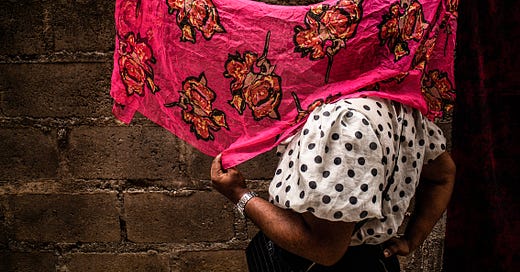Home away from toxic home
A pandemic spike in violence against women prompted one woman to open a shelter for survivors.
Rahma Jimoh in Lagos

In an ordinary year, one in three Nigerian women will suffer domestic violence. When the world stayed at home trying to survive the Covid-19 pandemic, the violence got a lot worse for women whose homes were already unsafe. Betty Abah did something about it: she opened Hearts of Hope Shelter in Lagos.
Even though she recognised the need, the desperation for such a sanctuary took her by surprise. “We once had people come to the shelter barefooted from Akwa-Ibom,” Abah says. Nigeria, where nearly 113-million women and girls live, has just 20 shelters for survivors of gender-based violence. The Netherlands, with a female population of about 20-million, has 5,000.
In its five years, the shelter has housed at least 100 survivors. Most of them had not even known beforehand of the option to leave their toxic homes for a shelter.
Omotoyosi Okoli endured nine years of violence from her husband, believing she would otherwise have to live on the streets.
At 22, in her third year of university, she met a man, married him shortly after and started working at his hotel. When the violence started – coercive control, hair pulling and other assaults designed to leave no scars – he also would instruct the hotel not to pay her. For years, she felt stranded. “I didn’t think I would find help, or that there was a place I could run to,” she says.
When he strangled her one morning at 5am, he finally gave her “concrete evidence” with which to report the abuse to the police.

At the Ilupeju police station, the husband didn’t help his case: he reacted violently and rudely to the officers so they locked him up and sent Okoli to the Lagos State Domestic and Sexual Violence Agency. It’s here that she was directed to the shelter.
Other women who don’t know where to turn – police officers can be bribed by their abuser, neighbours can stigmatise or ignore them – often report their violence to prominent feminists. At least two survivors at the shelter said they went to feminist podcaster and activist Lolade Ajayi, who then referred them to Hearts of Hope.
For now, such individual efforts stand in for what should be society-wide care. One can stay at the shelter for up to three months while they learn some skills and try to find their footing.
But some Nigerian feminists believe that nothing short of a state-declared “state of emergency” would truly meet the challenge. Through a non-profit, Ajayi runs a Femicide Observatory. Last year, it documented more than 100 femicides in Nigeria.
Yet, official solutions can be even more fragile than individual responses. In 2020, with more talk about genderbased violence because of the Covid spike, Nigerian authorities did something too. They created an inter-ministerial committee to work with the State of Emergency GBV Movement on solutions. “That committee didn’t meet more than twice,” Chioma Agwuegbo, who spurred the movement, told The Guardian in February.




Important reporting! Seems like it's insidious, everywhere! Friends in Kenya tell me toxic masculinity is running rampant.